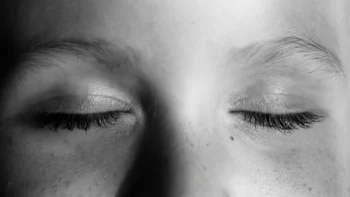Taking care of your vision is just as vital as taking care of any other aspect of your health. Even if you think your vision is fine, more than 11 million Americans over age 12 need vision correction. Many eye diseases don’t have symptoms and can go undetected for a long time.
Finding the right kind of eye doctor for your needs is important. For example, you might not go to the same eye care specialist to get a pair of glasses as you would for vision correction surgery, just as you wouldn’t go to a cardiologist for muscle pain. Finding the right doctor can be confusing, so let’s take a look specifically at ophthalmologists and what they do.
What Is an Ophthalmologist?
An ophthalmologist is an eye doctor trained to diagnose and treat vision conditions. They are the only eye care specialists allowed to medically and surgically diagnose and treat eye conditions. An ophthalmologist can either be a medical doctor (MD) or a doctor of osteopathy (DO) and is certified to provide their patients with medical and surgical eye care. Beyond medical school, ophthalmologists are required to continue specializing in eye care with three or four years of further medical training, plus an internship.
Ophthalmologists complete between 12 and 13 years total of medical education and training. Beyond seeing and treating patients, many ophthalmologists are involved in scientific research and studies around eye diseases. This includes pinpointing the causes and finding cures for different conditions that can affect vision.
Ophthalmologists vs. Other Types of Eye Doctors
You’ve probably heard of other types of eye doctors without knowing exactly what the difference is between them. For example, an optician is an eye care professional but they are not a medical doctor. An optician is trained to fit glasses frames, lenses, and contacts to help correct vision problems. However, opticians aren’t certified to diagnose or treat eye conditions. Some states require that opticians receive training and licensure while other states don’t.
Another eye care professional is an optometrist. An optometrist can examine your eyes to check for any signs of abnormalities and conditions that can affect your vision. They can also make overall health assessments and offer medical advice, especially when it comes to conditions like diabetes and high blood pressure that can affect your vision. An optometrist can prescribe glasses or contact lenses and can refer you to further specialists, if necessary.
When Should You See Your Eye Doctor?
How often you should see your eye doctor depends on several factors. If you don’t have any eye problems that you’re aware of, doctors recommend visits by age:
- 20-39 years old: every 5 years
- 40 to 54: every 2 to 4 years
- 55 to 64: every 1 to 3 years
- Over 65: every year
If you already wear glasses or contacts, you need to get your eyes checked more frequently to see if there are any changes to your vision. This also goes for people who have chronic conditions or a family history of diseases that can affect their eyes and vision.
A pediatrician usually checks children three years old and under for common eye problems like crossed eyes or a lazy eye. Children should get their eyes checked at least every couple of years.
What Does an Ophthalmologist Treat?
All ophthalmologists are certified to assess and treat various eye conditions and diseases. Some choose to further specialize in certain fields of medical or surgical eye care. These subspecialists continue their education and training with a fellowship that concentrates on the area that they want to treat.
Some subfields that an ophthalmologist may study further are:
- Glaucoma: medical and surgical treatment of conditions that can cause damage to your optic nerve
- Pediatrics: eye conditions in children
- Neurology: neurological conditions that can affect vision
- Cornea: cataract surgery, refractive eye surgery, and corneal transplantation
- Retina: conditions that affect the retina and vitreous, like diabetic retinopathy and retinal detachment, and laser and surgical treatment for them
- Oculoplastic surgery: learning how to perform surgical procedures like repairing fractures and removing tumors
These subfields allow ophthalmologists to learn how to treat specific groups of patients or care for conditions that may extend past eye care.
Seeking Treatment
If you are experiencing problems with your eyes or vision, an ophthalmologist is highly-trained in assessing and diagnosing conditions relating to different parts of the eye.
For example, ophthalmologists can treat conditions like:
- Cataracts
- Dry eye syndrome
- Diabetic eye disease
- Macular degeneration
- Blepharitis
- Styes
Your Las Vegas ophthalmologist is certified to take care of any and all eye needs, but the most common reason to seek out treatment is if you have a serious eye condition that needs surgical or specialized treatment.
Surgery and Specialized Treatment
If your ophthalmologist finds that you have a serious condition, they will decide the best course of treatment. Ophthalmologists need to treat the following conditions with eye surgery:
- Retinal detachment
- Cataracts
- Glaucoma
In addition to surgery, your doctor will create a plan for follow-up care, including any necessary medications.
Other conditions may not require medical surgery, but require monitoring and care from a specialist. This could include taking vitamins and supplements, wearing an eye patch, or having laser surgery.
Brimhall Eye, Your Las Vegas Ophthalmologist
If you’re looking for an ophthalmologist in Las Vegas, Brimhall Eye has a team of board-certified eye care and vision experts that you can trust. Compared to other practices, the doctors at Brimhall Eye see fewer patients per day. This way, doctors can spend more time one-on-one with each patient, getting to know you and creating a treatment tailored to your needs.
The ophthalmologists at Brimhall Eye are trained to diagnose and treat a number of eye conditions and diseases. The team specializes in cataract surgery and LASIK vision correction, in addition to creating treatment plans for conditions like glaucoma, dry eyes, diseases of the cornea, diabetes, and several others.





